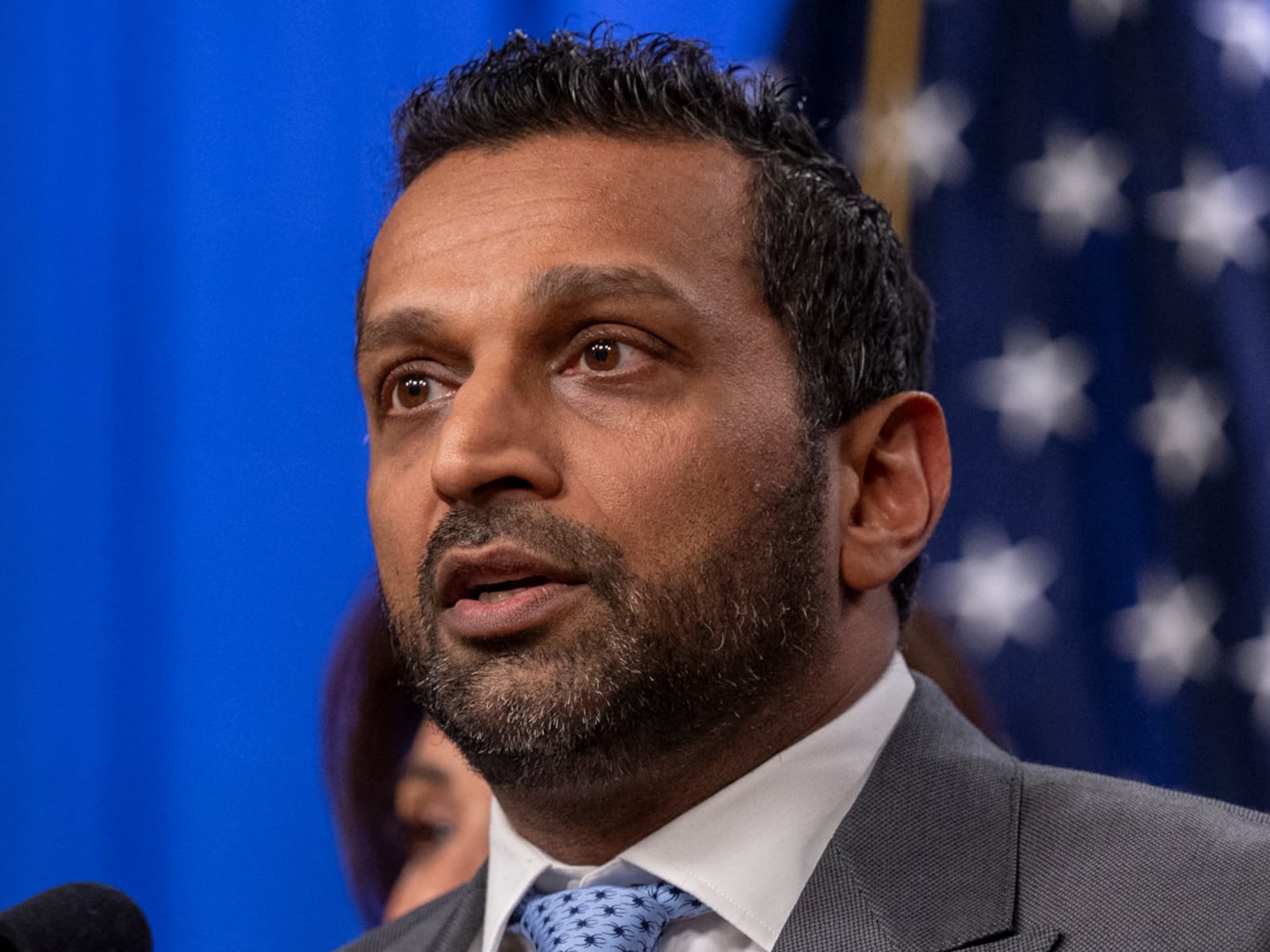Like many young Syrian Alawites—members of the small Shiite Islam sect that forms the backbone of President Bashar al-Assad’s government—Khalil was pressed into military service after the revolution began in March 2011. The army called him up last May, just before he was due to finish his university degree, and posted him to the war-torn countryside outside of Damascus.

Khalil was no believer in the government’s cause. Faced with the prospect of killing his countrymen, he tried to flee this past summer, but a bombing closed the roads leading from Damascus and he was forced to turn himself in, pretending he’d been delayed while on leave for exams. The army threw him in prison for a month, then released him to continue his service.
Since getting called to duty in the revolution’s early days, Khalil watched as the once-fearsome military steadily deteriorated. Tanks and other heavy weaponry fell into disrepair. Thousands of troops, and hundreds of senior officers, were lost to death and desertion, and many switched to the rebels’ side. The same army that once rolled tanks and troops down the highway to assault the rebellious city of Homs took to shelling the opposition from afar, or bombing them from the sky. Now, rebel forces are even threatening the government in its stronghold of Damascus.
But as Assad’s army weakens, rebels and analysts warn, it is also becoming more extreme in its fight for survival. And two of the grimmest scenarios observers have long feared—that Islamic extremism could come to dominate the rebel fight, and that Assad could decide to attack with chemical weapons—now look more likely than ever to take hold.
Many Sunni soldiers have left the military’s ranks, leaving behind a core of dedicated troops, most of them Alawites like Assad. Though the sect makes up a relatively small proportion of the Syrian population—around 12 percent—it has dominated the country’s political machine for decades, and Assad has painted himself as the protector of the Alawites, along with other minorities such as Christians, Druze, and Ismailis. Now, after months in which Assad’s forces have leveled cities—and during which more than 40,000 people have died, according to activist groups—many loyalist troops feel their backs against the wall. “They know that the people on the ground know who they are,” says Khalil, who finally escaped to Turkey this fall, “and they know that justice will be brought” if the rebels prevail. “Their support for the regime is getting stronger and stronger. They know they have to fight to the end.”
Syria once boasted one of the most feared armies in the Middle East. It occupied neighboring Lebanon for decades, turning Beirut into a puppet government. With the backing of its ally Iran, it intimidated Sunni rivals and was seen as one of the principal military threats to the Israeli state.
But the army has been on the defensive for months against an opposition that—though disjointed—has managed to carve out major gains in Syria’s countryside and cities. In recent weeks, the rebels have enjoyed a surge in momentum, overrunning key military bases around the country and even using anti-aircraft missiles to shoot army planes from the skies. At the same time, rebel forces have pushed ever deeper into Damascus. Not long ago, the capital was considered so secure as to beyond the opposition’s reach. Now, international airlines are cancelling flights to the city’s airport for fear of the intensifying conflict. The United Nations has pulled staff from the capital, and diplomats have fled.
In the midst of such high-profile successes, the rebels might be expected to boast about gaining the upper hand, as they’ve often done in the past. But for many, the recent progress in Damascus has been accompanied by a lingering sense of dread. Rebel fighters in the city suspect that they are nearing the government’s inner sanctum and that the fight to defend it will be vicious. Mattar Ismail, the spokesman for the formidable Ahfad al-Rasul rebel brigade in Damascus, says that the coming days will see a new surge of violence unleashed on the capital. “There will be a sudden increase in the regime army’s use of force,” he says. “We will see more destruction and more victims.”
Damascus residents say they’ve witnessed ominous signs of an impending government crackdown. Lena, a local activist who goes by a pseudonym, says that even in previously non-militarized neighborhoods—such as Mazzeh, where she lives—government troops are now everywhere. Mazzeh is a main corridor through which the rebels could reach central Damascus from their bases in the suburbs. “There has been a change on the street,” Lena says. “Here in Mazzeh, we can see troops everywhere. Every few days, we even see them on the rooftops.”
“Damascus is waiting for something to happen,” she adds.
For months, the rebel’s strategy in central Damascus has focused on planting bombs at government targets, such as the buildings housing the state security headquarters and the Joint Chiefs of Staff, in an attempt to gradually weaken Assad rather than confront his forces outright. This fall, as these campaigns intensified, one senior rebel commander involved in the operations told The Daily Beast that slow strangulation would be the only way to take on the government without plunging the country into chaos. “The regime is like an eagle, and every time you do a mission, you cut off one of its wings,” he said. “We don’t want to target the head. We want to target the wings. We want to cut everything around him and keep him isolated. If we target the head alone, then everything around him will cause problems.”
But as the rebels push further into Damascus, they fear that a full-on confrontation with Assad’s troops may be inevitable—and that it could be catastrophic. Ismail, the Ahfad al-Rasul spokesman, says that while “the internal deterioration is great” among government troops, the military must be understood as “two armies—one mostly made up of Sunni, Christians, Druze, and Ismailis, and the other of Alawites and Shiites, who are mostly concentrated in the 4th division, Republican Guard, and the Special Forces Unit.” The first group, Ismail says, “has completely collapsed—it doesn’t want to drown with the sinking ship, the regime.” Even as doubt sets in, though, the second group is hardening its intentions. “The elite will remain with the regime until its final gasp, because it believes it is fighting an existential battle.”
Despite the ongoing defections, little is known about what’s going on inside the Syrian military these days. Even though scores of senior officers have crossed over to the rebels during the past year, they tend to lack up-to-date knowledge of what has, by all indications, become an increasingly paranoid and insular force, headed by a small and dedicated core of officers who suspect rampant disloyalty within the ranks. Many analysts believe that the feared 4th division and Republican Guard, however, retain much of their strength.
It’s also unclear how many soldiers remain in the army. “No one’s on the ground interviewing various Syrian army battalions and asking how many guys they have left,” says Gary Li, head of current intelligence at Exclusive Analysis, a risk-consultancy firm in London. Li adds that sheer numbers may matter less than loyalty and skill. Facing heavy casualties and defections, the government seems to have shifted its focus away from quantity to quality of fighters.
At the same time, the government’s strategy also seems to have shifted in recent months from one of trying to crush the rebels to one of retrenching and holding vital positions, often with the support of the military’s most elite troops. “The remaining forces are, by and large, the most loyal of Assad’s forces. And the forces most loyal to Damascus are stationed in Damascus. Some of the best units are concentrated there,” Li says. “What they’re doing is digging in.”
In other words, Assad’s forces are in survival mode, says Joseph Holliday, a former U.S. army intelligence officer who now heads the Syria initiative at the Washington-based Institute for the Study of War. Though there has been rampant speculation that the end is at hand for Assad, Holliday cautions that the government could yet hang on for some time, continuing to wreak havoc on Syria as it does. “They went from a mobile strategy pretty early on to basically trying to hold what they could,” he says. “And that’s a pretty effective way to survive.”
Many of the impressive gains made by the rebels of late, Holliday adds, were months in the making. The captures of military bases, such as the much-publicized seizure of a helicopter base outside Damascus last month, are often the result of patient guerrilla tactics, such as cutting the areas off from supplies and other troops, rather than an overpowering show of force on the rebels’ side. The Syrian military is “getting choked out rather than beaten,” Holliday says.
Over time, he adds, the rebels are bound to prevail. “I can’t make the math work [for the government],” he says. “And they have to be seeing that for themselves.”
As Assad runs out of defensive options, the international community has raised the alarm that it could turn to chemical weapons, which it has admitted to possessing. “It’s not like Iraq. In Iraq, there was a question: do they have chemical weapons or not?” a Turkish government official told The Daily Beast. “It’s not a question of whether [Syria] has them. It’s a question of whether they will use them.”
One former captain in the Syrian army’s chemical warfare unit, who has since defected, notes that Syria’s troops have already been trained to carry out a chemical attack. “If the regime is pushed into a corner, it will use chemical weapons,” says the captain, Abd al-Salam Ahmed Abdul Razek. “It’s not impossible to imagine. We were prepared for this.”
Citing new intelligence that the Syrian military may be repositioning its stockpiles in a way that could signal an impending deployment, U.S. President Barack Obama warned Assad last week that any use of the weapons would risk prompting an international intervention into the conflict. NATO also agreed last week to send Patriot missiles to Turkey’s border, describing them as defensive weapons in what was seen as an implicit warning to Assad on chemical weapons. “To anyone who would want to attack Turkey we say: Don’t even think about it,” NATO’s secretary-general, Anders-Fogh Rasmussen, told reporters in Brussels.
As the same time, the international community has also been worried by developments on the opposition’s side. For months, a shadowy force known as Jabhat al-Nusra has been at the vanguard of the rebel fight. Its soldiers are renowned among the other rebels for their bravery and skill, and they often take the lead in critical operations. But some rebels admit that they have little insight into how the group operates, and that they lack influence over what it does. Jabhat al-Nusra has long been suspected of having links to al-Qaeda—suspicions that first surfaced when the group began posting news of its campaigns on forums favored by Qaeda operatives.
As Jabhat al-Nusra has gained prominence—and as some of its methods, such as suicide bombings, have been criticized by other rebels—concerns about its Qaeda ties have risen. Citing Iraqi officials and former Iraqi insurgents, The New York Times has called the group “a direct offshoot of al-Qaeda in Iraq.” And it emerged last week that the United States may be planning to designate Jabhat al-Nusra as a terrorist group.
Though there are reports of foreign fighters in Jabhat al-Nusra’s ranks, rebels say the group is made up primarily of Syrians, allaying some of their fears of potential trouble from the group down the line. They also contend that the group gets the job done in their desperate and underfunded fight. At the same time, even as rebels condemn the civilian collateral in Jabhat al-Nusra’s bombing campaigns, some have started to defend the group’s tactics. “Do you think it’s better for one [suicide bomber] to die, or for an entire company of men to risk their lives?” says one rebel who recently left the Ahrar al-Sham brigade, another fighting group suspected of ties to extremists. (Other rebels expressly reject Jabhat al-Nusra’s methods. “It’s not possible for someone who wants to protect civilians to kill them,” Ismail, the Ahfad al-Rasul spokesman, said in October after an Aleppo suicide bombing by the group killed civilians along with its government targets.)
In a recent interview, Abdul Qader Saleh—the leader of the formidable Liwa al-Tawhid brigade in Aleppo, where Jabhat al-Nusra has a prominent presence—said that Jabhat al-Nusra and other jihadist groups make up a small percentage of the rebel forces, as most independent analysts believe they do. But Saleh warned that their numbers would keep growing as the war dragged on and the rebels continued to battle without significant international support. “The longer this goes on, the more people are going to enter this war,” he said.
The fear of growing extremism helps Assad, who has tried to claim from the start that the revolution—which began as a peaceful protest movement—is dominated by Islamic jihadis who will overrun the country if he goes. Some in the opposition even suspect the government of secretly supporting groups like Jabhat al-Nusra, in order to ward off international intervention, with foreign powers wary of empowering extremists, and to sow chaos in the event that he is overthrown.
Speculation has heated up of late that Assad may be seeking to leave the country. Last week, the Israeli newspaper Haaretz said that Assad was seeking asylum in South America. (Syria’s ambassador to Venezuela dismissed the report, saying, “It is not worth honoring these claims with a response.”) There are also signs that Assad’s allies may be distancing themselves. Russian president Vladimir Putin—Assad’s main benefactor on the U.N. Security Council—recently made a highly publicized visit to Turkey, a country that has roundly condemned the Syrian leader and that has served as a safe haven for rebel exiles in what many interpreted as a signal that Russia may be shifting its Syria stance. Russian officials, though, have insisted that their position on Syria remains unchanged.
In a televised interview last month with the Kremlin-funded news channel Russia Today, Assad vowed he would never leave the country and would “live and die” in Syria. Many analysts suspect that the leader intends to cling to Damascus at all costs, and also seek to hold his positions on the Syrian coast, and in particular in Latakia, the Assad family’s ancestral home. “If he was going to leave, he would have left already,” says Michael Weiss, the research director at the Henry Jackson Society, a foreign-policy think tank in London. “I think the reason we’re seeing these spurts of violence, and these potentially catastrophic moves in terms of chemical weapons, is he’s looking for a doomsday scenario. He’s thinking, If I’m going to go down, I’m going to bring the country with me.”
Many rebels agree with this assessment, saying that Assad and his core supporters will never leave. “The regime army is in a state of contraction,” says Mustafa Sheikh, the head of the rebel Free Syrian Army. “Unfortunately, the Alawites in the military still stand by the regime.”
Khalil, the young Alawite who recently escaped the Syrian military says that many of his fellow Alawites soldiers would like to do the same, but they are trapped. As the situation becomes ever more desperate, dissention in the ranks is treated with a brutal response. And families from majority Alawite areas, like Khalil’s home city of Latakia, find it extremely difficult to flee, fearful of watchful neighbors, and with safe havens often far from reach. Khalil only left the army after his parents and siblings were safely out of the country. “Most Alawites, says Khalil, “are staying with the regime because they’re forced to.”






